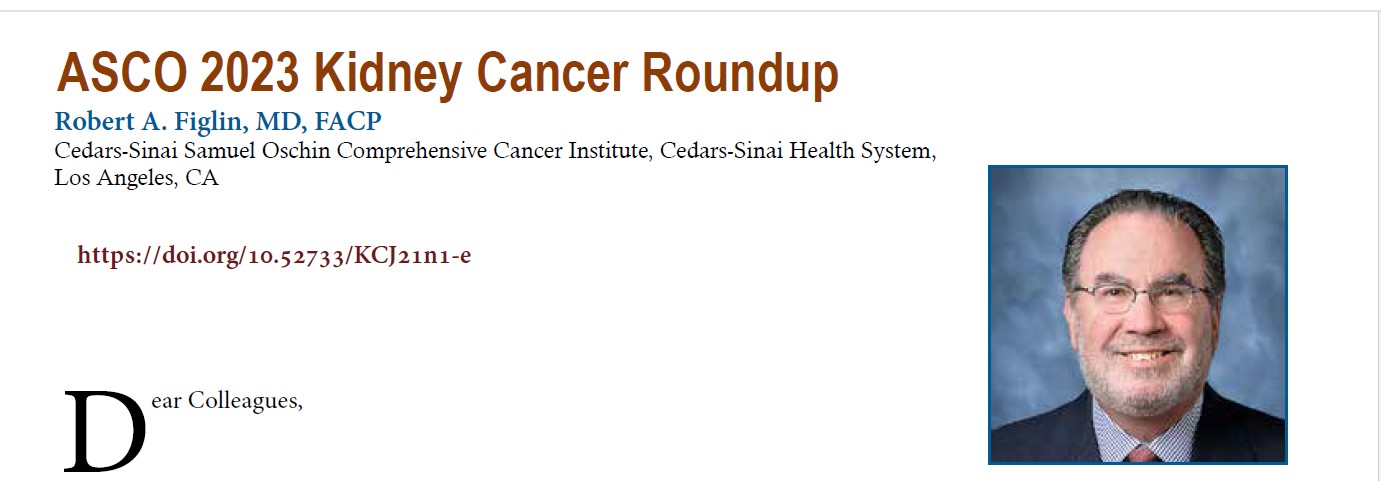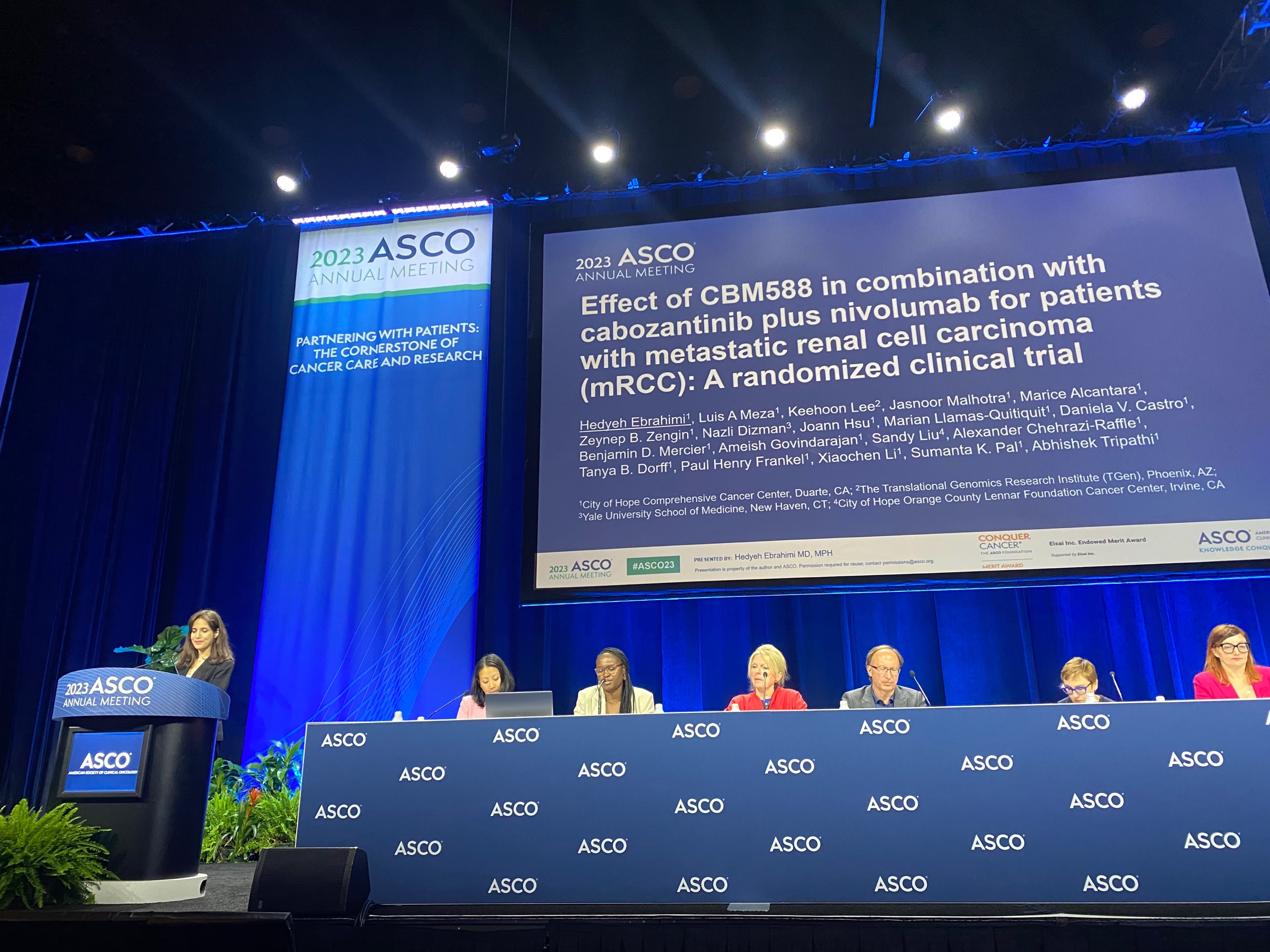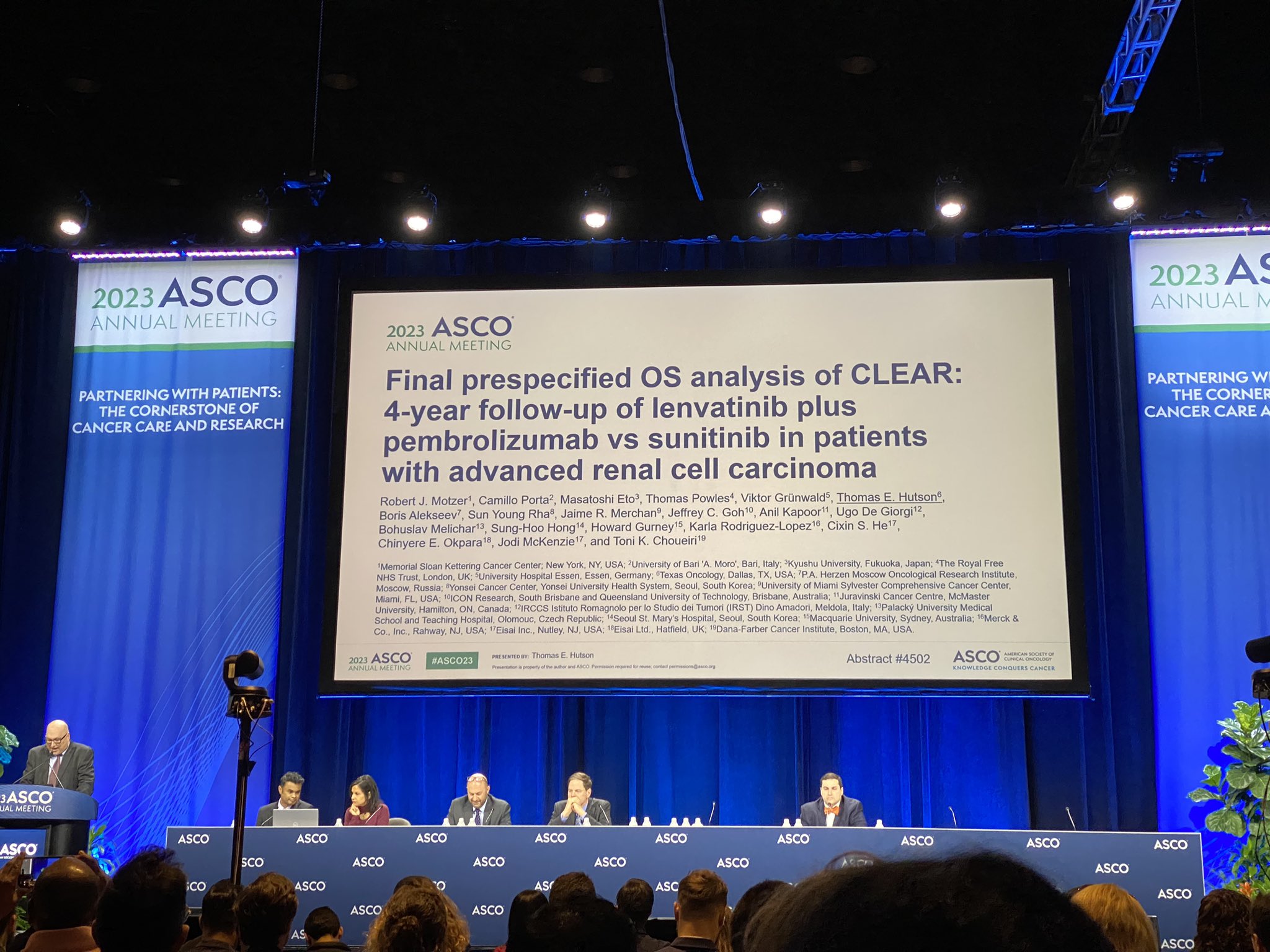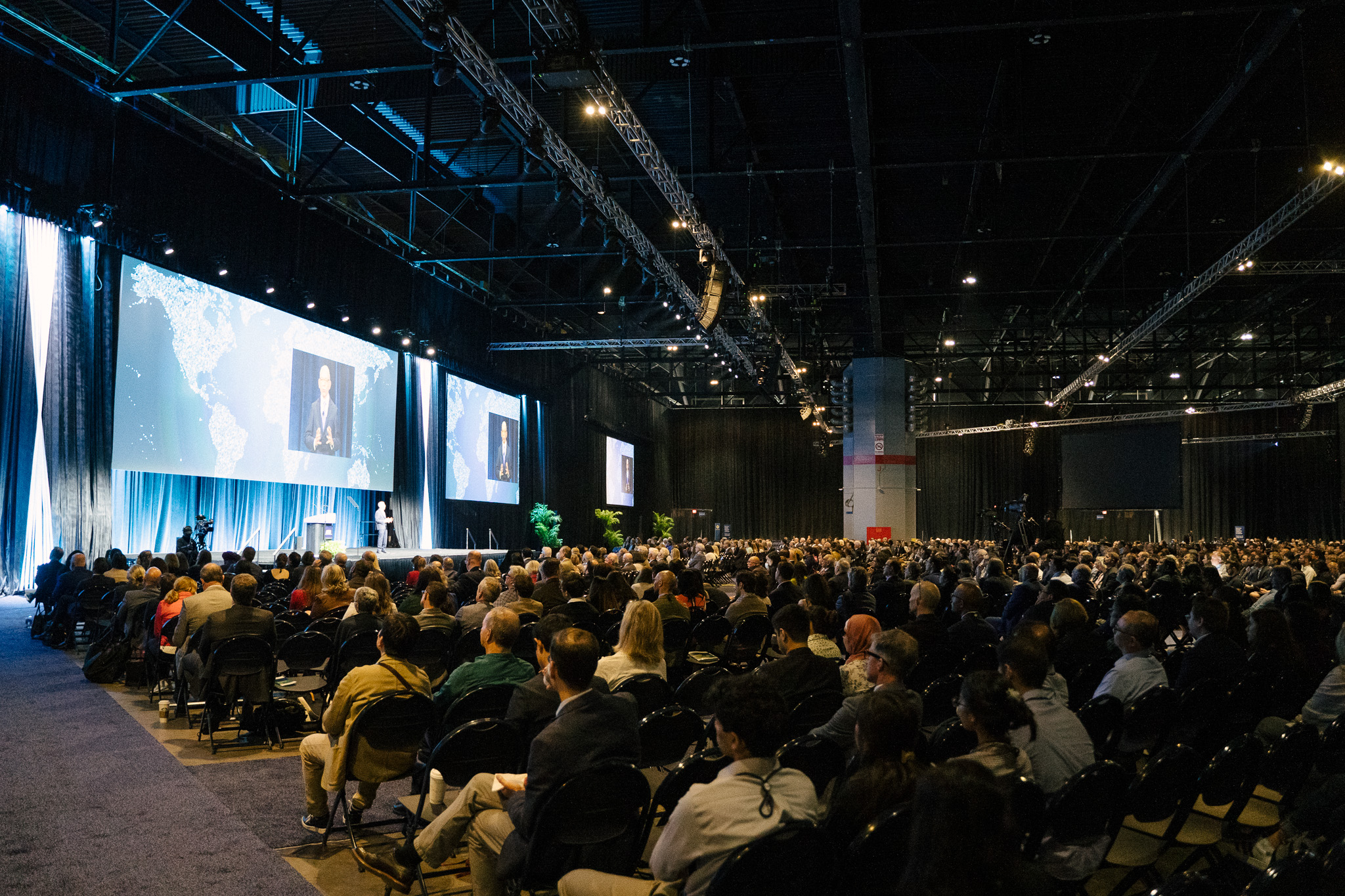https://doi.org/10.52733/KCJ21n2-e

The world-leading cancer researchers from more than 125 countries gathered at the 2023 ASCO Annual Meeting from June 2-6, held in Chicago, USA and online to drive conversations on the state-of-the-art treatment modalities, breakthroughs, novel strategies, and ongoing controversies in the field. The sessions were packed with practice-changing results and scientific insights from major phase III trials presented alongside exciting as well as early phase trial results. This year's theme, 'Partnering With Patients: The Cornerstone of Cancer Care and Research', takes a closer look at how interactions between clinicians and patients have changed over the years, and what can be done to make interactions between clinicians and patients better.

Approximately 6,900 abstracts were presented at this
year’s Annual meeting, with almost 30% of all abstracts
related to clinical trials. Of these, more than 70% of
referenced phase II trials are currently ongoing. The
ASCO features over 120 sessions featuring important
and timely research from the clinical oncology landscape
topics. Overall, with over 1,100 drugs discussed, ASCO23
highlighted progress on a wide range of established and
new therapeutic regimens. One of the key focus areas at
ASCO this year is novel immunotherapeutics, checkpoints
inhibitors, bispecifics, and vaccines in development. As seen
in recent years, Pembrolizumab and Nivolumab (both anti-
PD-1 antibodies) remain the top drugs of interest based on
the large number of presentations.
Let’s dive into the key developments from some of the
highest-profile clinical trials presented in the ASCO23
conference. Primary PFS analysis from the phase III,
randomized, open-label CONTACT-03 study (Abstract
LBA4500) has shown the atezolizumab plus cabozantinib
combination failed to improve primary PFS with IO-TKI
in the second-line setting in patients with metastatic RCC.
Therefore, using a targeted therapy plus an immunotherapy
combination does not outweigh the benefits of targeted
therapy alone in patients whose disease has gotten worse
on previous treatment. The data reinforce the need for
randomized prospective assessment of rechallenge with
checkpoint inhibitors and PD-1/PD-L1 inhibitors in patients
who experience progression on a PD-1/PD-L1 inhibitor. The
extended 4-year follow-up data (Abstract 4502) has shown
that the IO-TKI combination - lenvatinib plus pembrolizumab
remains superior to sunitinib in all risk groups , as first-line
treatment in aRCC, (CLEAR study). Although not practice
changing, the updated results from CLEAR reaffirm current
practice of using front-line immunotherapy/TKI combination.

This year, there were several studies presented focusing on the treatments for non-clear cell kidney cancer (Abstract 4518, 4537, and 4520 etc). For example, in Abstract 4520, the triple combination of nivolumab, ipilimumab and cabozantinib showed some benefit in patients with nonclear cell kidney cancer, especially when compared to other treatments like nivolumab plus cabozantinib, or lenvatinib plus pembrolizumab. The COSMIC-313 study previously showed a delay in the time to when the cancer regrows in the setting of cabozantinib with two immunotherapy medicines, nivolumab and ipilimumab for patients with advanced clear cell kidney cancer. This triple combination study is still ongoing at various stages of their treatment schedule and yet to be tested in other subtypes.
Abstract 4530 reports about the utility of cabozantinib
as a second-line treatment following IO therapy has stopped
working as compared to other VEGFR TKIs in the real world.
Cabozantinib was effective after prior immunotherapy in
patients with kidney cancer that had spread, regardless of
previous VEGFR TKI treatment. In early results from the
KEYNOTE-B61 study (Abstract 4518) showed that the
combination of lenvatinib plus pembrolizumab is effective as a
first-line treatment for advanced non-clear cell kidney cancer.
The researchers presented more follow-up information from
this study. Importance: This study shows that the combination
of lenvatinib plus pembrolizumab is an effective first-line
treatment for patients with different subtypes of non-clear
cell kidney cancer. There is an unmet need for an accurate
test to diagnose kidney cancer to guide patient management.
Abstract 4554 shown the results from a phase 3 study of
89Zr-DFO-girentuximab for PET/CT imaging and this study
confirms that 89Zr-DFO-girentuximab is well tolerated and
can accurately identify kidney cancer from a PET/CT scan.
The ASCO 2023 Annual Meeting yet again served as the
premise for the unveiling of enticing clinical data from pivotal
research. We can clearly witness the innovative mindset at the
ASCO combined with the exploration of clinician and patient
interaction to deliver promising therapeutic avenues, especially
keeping patients front and center in drug development. With
the focus on enhancing innovative therapies to meet the
needs of patients, the industry requires effective strategies to
improve trial diversity among underserved populations. Only
then can we truly gauge how these treatments may provide
real-world benefits to those most impacted by certain cancers.
While combination therapies continue to receive attention at
ASCO 2023 and tremendous progress has been made as well,
but the question remains if their potential holds true with
long-term durable outcomes and as well as for individualized
patient strategy for patients with advanced/metastatic kidney
cancer. We eagerly look forward to all study results that could
once again shift practice in cancer care.

In this issue, Campbell et al presented a case study of a 44-year-old female with morbid obesity and hypertension found to have bilateral renal lesions with venous involvement who underwent right radical nephrectomy with IVC thrombectomy followed by left laparoscopic nephrectomy, ex vivo PN and autotransplantation. The role and timing for cytoreductive nephrectomy in mRCC have been a moving target over the past couple decades and continue to evolve. In the case study, Bhanji Y et al, shown that use of ICI prior to cPN was beneficial to downsize and downstage the primary tumor, thereby facilitating nephron preservation, while resolving the paraneoplastic manifestations of the cancer that would otherwise limit the patient’s candidacy to undergo cytoreduction. This year’s ASCO coverage is provided by Roy Elias, Yasser Ged, and Nirmish Singla.
.
Correspondence to: Email: robert.figlin@cshs.org




